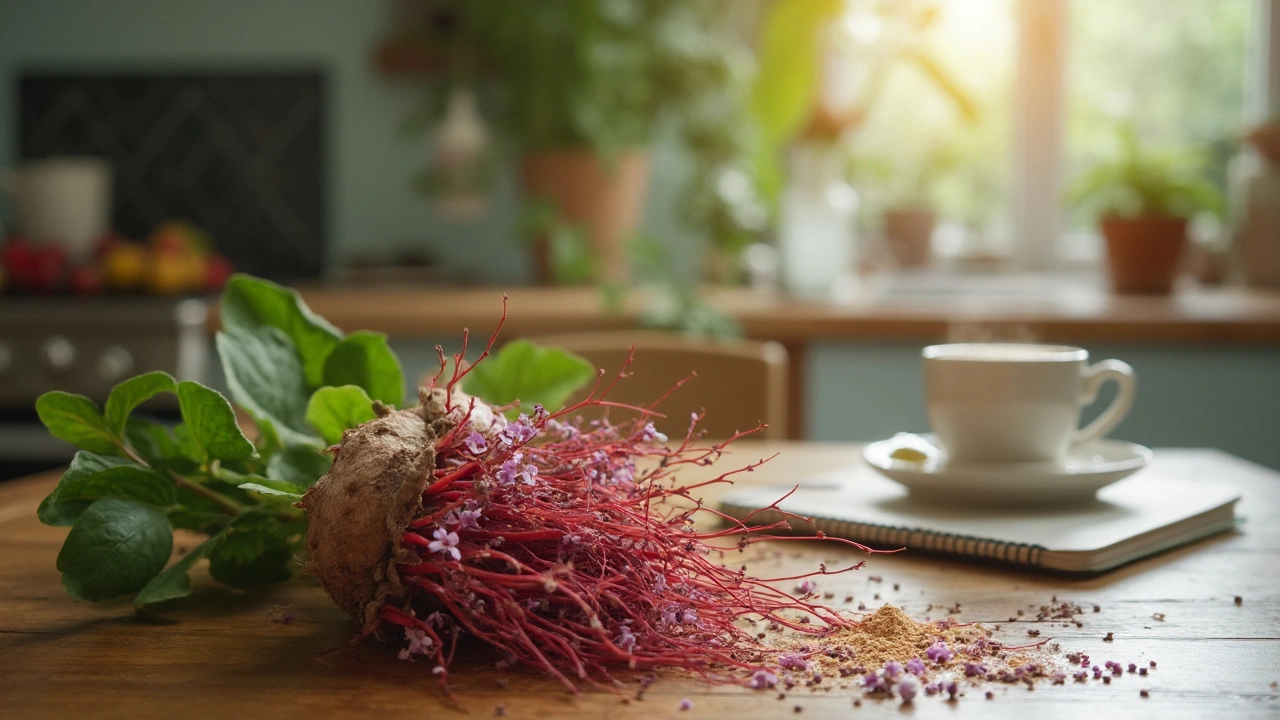Herbal Remedies: What They Are and Why They Matter
Ever wonder why people keep reaching for ginger tea, turmeric capsules, or even kale pills? It’s because herbs have been used for centuries to treat everything from a sore throat to chronic fatigue. Today, modern science is catching up, proving that many plant‑based ingredients really do help our bodies. In this guide, we’ll break down the basics of herbal remedies, point out a few popular options, and give you practical tips for using them safely.
Common Herbal Remedies and Their Everyday Uses
When you think “herbal remedy,” the first things that come to mind are usually tea, tincture, or a supplement capsule. Here are three that show up a lot on FlameCare Online:
- Kale supplements – Kale isn’t just a leafy green; its extract is packed with vitamins A, C, K, and antioxidants. The Kale Supplement Benefits article explains how a daily dose can boost energy and support heart health without the hassle of chewing a bunch of leaves.
- Vanadium – This trace mineral looks like a niche supplement, but some research suggests it can help regulate blood sugar and improve metabolic function. Check out the Vanadium Benefits for Health guide for dosage basics and safety notes.
- Turmeric (curcumin) – Known for its bright yellow color, turmeric fights inflammation. Most people take it as a capsule or add the powder to smoothies. Pair it with black pepper for better absorption.
All three work differently, but the common thread is that they’re natural, relatively inexpensive, and backed by real‑world user experiences.
How to Choose Safe and Effective Herbal Products
Not every “herbal” label guarantees quality. Here’s a quick checklist before you click “add to cart”:
- Look for third‑party testing. Reputable brands will share a Certificate of Analysis showing what’s actually inside the bottle.
- Check the dosage. Too little won’t do much; too much can cause side effects. The dosage guidelines in each article (like the kale supplement guide) are a good starting point.
- Watch for interactions. Herbs can affect prescription meds. For example, high doses of St. John’s Wort may interfere with antidepressants. Always ask your pharmacist or doctor.
- Read customer reviews. Real feedback often reveals issues like unpleasant taste, packaging problems, or unexpected effects.
Following these steps helps you avoid scams and get the most out of your herbal routine.
One thing to remember: herbal remedies complement, not replace, conventional treatment. If you have a chronic condition like diabetes, the Glucotrol XL guide reminds you that medication adherence is still crucial, even if you add a supplement like vanadium.
Ready to try something new? Start with a single herb—maybe a daily kale capsule or a turmeric tea—track how you feel for a couple of weeks, and adjust as needed. Keep a simple journal noting energy levels, sleep quality, and any side effects. That way you’ll know what truly works for you.
Herbal remedies are a handy toolbox for everyday health. With the right research, safe products, and a little patience, you can harness plant power to feel better without complicating your life.

